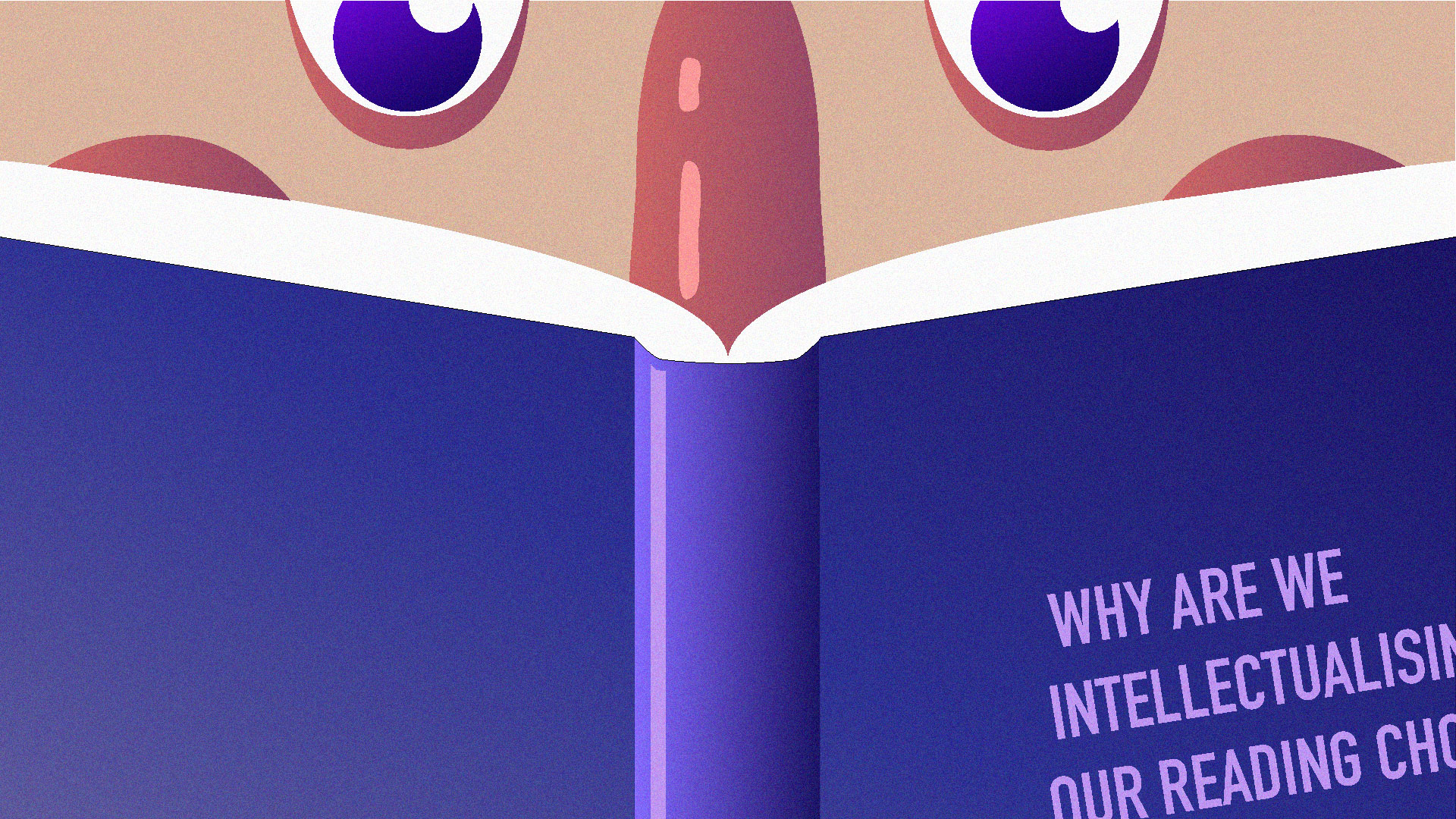[Written By: Emma Harrison]
[Illustration: Julia Rosner]
There is a pretty strong consensus, when it comes to fiction, that there are “good” and “bad” books. In a less complicated world, this would simply mean that there are books that are well-written and enjoyable to read, and books that aren’t. Instead, the issue is far more convoluted – a good book must also be considered proper literature, of academic interest, of sound reputation, and as far from commercialised writing as possible. Whether it is actually enjoyable to read or not often seems to be less important than how far it can distance itself from its contemporaries.
Nowhere has this distinction been more evident to me than during my time studying English Literature, which has complicated the issue still further. What makes a work of literature worthy of study? Does being featured on an academic course constitute a good book? After all, somewhere along the line the decision to consider that work part of the literary canon was made according to someone’s personal opinion. Some of the novels that we now consider undisputed classics, such as early examples of the Gothic, were regarded by contemporary readers in the same way that many view romance novels in the twenty-first century.
Arguably the worst part of this polarised system is the pressure that it exerts on readers – perhaps most heavily on literature students – to confine themselves to only academically acceptable works. As much as I would like to believe I am not solely influenced by other people’s opinions on what makes a good book, I have felt this time and time again at university; an environment that encourages us to constantly try to present ourselves as both cultured and well-informed. When referencing my favourite books in class, I feel a sudden need to justify their academic relevance and worth, when truly it ought to be enough that I enjoyed and valued them. I constantly find myself assessing the reading choices that I make outside our course set texts, wondering if they are appropriately challenging and intellectual reads in the absence of a scholarly stamp of approval. (At one point I found myself trying to argue that there was an inherently political slant to Bridget Jones’s Diary, before realising I had entered a new realm of pretentiousness.) This is, if anything, only exacerbated by the reactions of people outside the university bubble – in response to my choices of reading over the holidays, comments were passed on my “light reading” and their relief that I was still interested in “normal books.” I find this seemingly universally accepted divide, between academically appropriate books and the remainder of the literary world, both unsettling and a hugely limiting way to look at the literature. Yet this is such an integral part of how we are taught fiction, from school onwards, that it is incredibly difficult to ignore; we are encouraged to prioritise those works that have been pronounced “real” literature, and to disregard the rest as affable, less stimulating reading for commuting and waiting rooms.
A large part of this can be put down to how we generalise fiction. Genre-based books – be it fantasy, science-fiction or romance – are rarely considered to be of scholarly value, mostly due to a variety of stereotypes and misconceptions. Even the term is applied less as a useful description, and more to set those books apart from what is perceived to be more sophisticated, artful forms of fiction. Denouncing entire sections of the literary world for this reason seems ridiculous – the intended audience can hardly be used as a barometer for quality, when excellent fiction can be found in all corners of literature. There is also the fact that genre fiction tends to be extremely popular, which seems to instantly alienate the possibility of it being of any educational interest. This then feels less like an attempt to defend good writing than it is a chance to feel intellectually superior to the masses. Surely the importance of a book should be that it has strong writing and accomplishes its goal – whether this is to pioneer a ground-breaking new literary technique or to chronicle a teen romance should not be the issue. People’s own personal opinions and experiences will decide how they feel about a book; and it is this that should matter, instead of the narrow and often snobbish views that demand an explanation of a book’s intellectual value.

